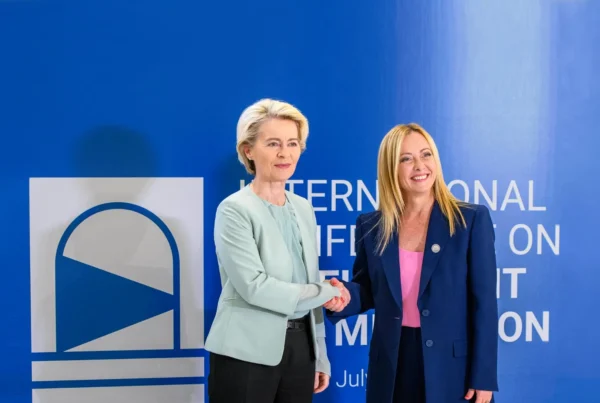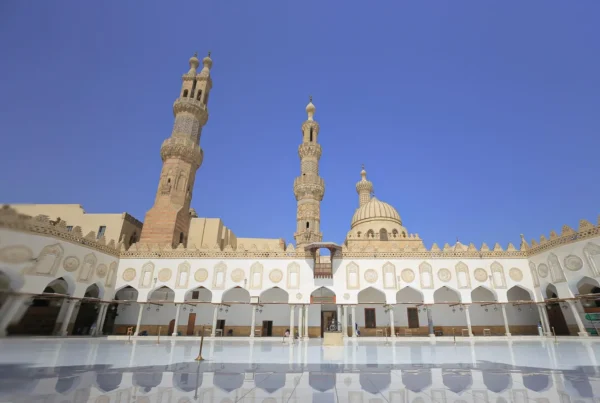Japan has a strong track record in Africa, as evidenced by its triennial Africa-focused conference TICAD. The latest TICAD conference was held in Tunis in August 2022. The unique conference organization can show other African partners how successful partnerships are built. Japan’s engagement in Africa demonstrates that African countries do not have to rely only Europe, the US, China, or Russia.
Michael Asiedu, 5 December 2022
In its nearly three-decade history, Japan’s International Agency (JICA), the country’s official development assistance arm, has undertaken projects with approximately 35 African countries and established a flagship triennial conference, the Tokyo International Conference on African Development (TICAD). The latest TICAD conference (TICAD VIII) which was held in Tunis from 27 – 28 August highlights the latest success of Japan’s engagement with Africa by committing to invest USD 30 billion over the next three years.
TICAD aims to promote high-level policy dialogue among African leaders and development partners, as well as mobilize resources for self-help initiatives in African countries. TICAD uses a unique multilateral approach for conference organization. The conferences are organized jointly by the Government of Japan, the African Union Commission (AUC), the United Nations (UN), the United Nations Development Programme (UNDP), and the World Bank.
Since TICAD’s inception almost 30 years ago, eight conferences have been organized with high participation from leaders and top officials from African countries, Japan, and international organizations. The result of the conference is always the adoption of an outcome paper (The Declaration) to govern Japan-Africa relations in terms of focus areas for a three-year period.
The outcome paper (1993 Tokyo Declaration) of the inaugural conference focused on “self-reliance of African countries, economic development through private sector activities, regional collaboration and integration, and future “South-South” cooperation between East and South-East Asia and Africa.” These guiding concepts of “ownership and partnership” have shaped almost all subsequent conferences.
Since TICAD V (2013), the host country has alternated between Africa and Japan every three years, with Kenya and Tunisia being the first African hosts.
As it stands, JICA and TICAD remain the fundamental pillars of Japan-Africa relations. When it comes to Japan’s investment in Africa, however, the Head of Japan Research at the Istituto Per Gli Studi Di Politica Internazionale, Céline Pajon, argues that Japan is attempting to “catch up on its delayed investments” in Africa. For instance, former Prime Minister Shinzo Abe pledged USD 60 billion in financial support at both TICAD V (2013) and VI (2016) respectively. However, by 2019, Japan’s investment goals had not been met, with FDI to Africa totaling USD 12 billion. The COVID pandemic also took its toll on Japanese FDI to Africa, as according to Japan’s Ministry of Finance, there was a drop in FDI from USD 590 million in 2019 to USD 310 million in 2021.
Irrespective of Japan’s FDI shortfalls, it is the largest provider of concessional donor loans to the African Development Bank (AFDB). JICA signed an agreement with the AFDB to provide USD 668.1 million to support the 15th replenishment of the African Development Fund (ADF).
In terms of direct trade, Japan’s inroads into Africa have not resulted in a significant increase in commercial relations. African countries still account for a marginal share of Japan’s two-way trade. Irrespective of this, Japanese brands are strongly visible in Africa’s construction sector, and in the electronics, automobile, and motorcycle industries. Brands such as Honda, Nissan, Toyota, Komatsu, Panasonic, Canon, and Yamaha have a large share in most African markets and are popular.
According to the official JICA website, it spent over USD 1.5 billion on various initiatives on the African continent in 2020. Based on the framework of TICAD VII within the Yokohoma Declaration and its three pillars: 1.) economic and private sector engagement; 2.) a sustainable and resilient society; and 3.) strengthening peace and stability. The Declaration included the training of 23000 healthcare workers, and 46000 justice, police, and security professionals. A further 26000 were trained to diversify industries and create jobs in various African countries where JICA operated. JICA’s assistance was also crucial to the Coalition for African Rice Development (CARD) programme, which produced 32 million tons of rice in 2019, where additional USD 490 million were allocated to improve road connectivity in JICA’s operating countries.
Additionally, as part of JICA’s Initiative for Global Health and Medicine in Africa, over 30 African countries received assistance amounting to USD 600 million in the form of medical equipment, supplies and funds to enhance preparedness and mitigate the pandemic’s impact.
Given these developments, Japan’s footprint on the African continent can no longer be ignored. At the recently held TICAD conference (TICAD VIII) in Tunis (August 27 and 28, 2022), Japan announced that $30 billion would be committed over the next three years to strengthen Africa’s human capital as well as agribusiness and health care. TICAD VIII was significant because it was the first post-Covid Japan-Africa engagement on African soil, with over 20 African heads of state in attendance, as well as senior officials from regional, continental, and international institutions such as the African Union, the United Nations, and the World Bank. Prime Minister Kishida Fumio himself delivered his remarks via video after testing positive for COVID-19.
What Japan’s engagement in Africa demonstrates is that African countries do not have to rely only on so-called traditional partners such as Europe, the US etc. African countries must widen their scope in terms of their partners and be clear and concise in their partnership goals. This is important given the uncertainty surrounding the global post-pandemic economic landscape. Africa needs investments in key industries such as technology, agriculture and the extractive sector.
African countries need to further explore additional non-traditional partners by way of other bilateral conferences with an Africa focus inspired by the TICAD model. The framework of TICAD is unique. It doubles as a multilateral platform where not only Japan and Africa sit at the table, but also the involves international institutions such as the UN, World Bank and the Africa Union. They become important stakeholders and monitors of the outcome documents.
Finally, the outcome document, affectionately called ‘The Declaration”, provides a focus. It sets goals until the next TICAD. For the next three years, the Tunis Declaration focuses on 1) Economy: Realizing a structural transformation for sustainable economic growth and social development; 2) Society: Realizing a resilient and sustainable society; and 3) Peace and stability: Realizing sustainable peace and stability.






